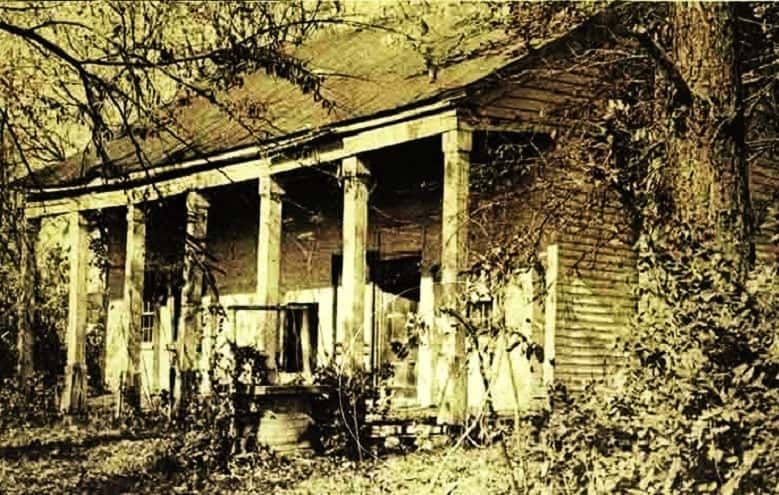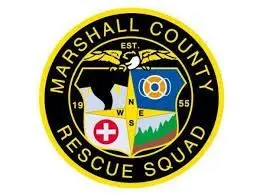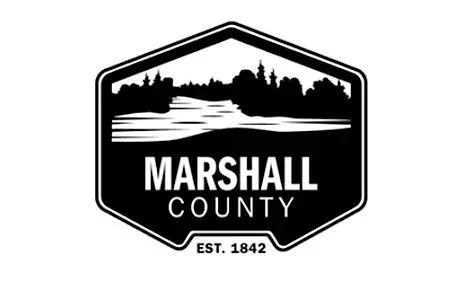Remembering the Lovett House
Written by Justin D. Lamb

(Collection of the author)
Sitting on top of a hill in the Fairdealing community, once stood an old antebellum home that was known to all the locals as the Lovett home. Originally built by the Faughn family in the 1840s, the house, which was one of the first frame homes in the county, was the center of many historical events during Civil War.
The Faughn family came from New Orleans and settled at the mouth of Jonathan Creek in 1800. Timber, fish, water, and game were plentiful, and eventually, John Faughn, the patriarch of the family, acquired all of the land from Jonathan Creek to present day Fairdealing.
In the 1840s, John Faughn’s son, Enos, acquired land at the end of the Birmingham-Wadesboro Road (now Old Olive Road) which intersected with the Paducah-Aurora Road (now U.S. HWY 68) to build his home for his family. The home had long porches, high beams, several bedrooms, and a fireplace, all which were built with slave labor. When the home was first built, an outside staircase led to the second floor, but was later moved inside. A kitchen was built separate from the house as was a smoke house. A log slave quarters was situated at the edge of the property at the back of the house. Directly across the road from the house, Faughn opened a general store with a large sign proclaiming “fair dealing” to advertise his business practices, and when a post office was opened, the community was officially named “Fairdealing.”
The Civil War brought about a great deal of action and excitement to the home during the 1860s. The home was often a stopping point between Egner’s Ferry and Paducah for both the Union and Confederate armies. The guests would keep their valuables in Enos Faughn’s steel safe, but plunders ravaging the countryside during the war, the safe often became a target. However, if any looters ever tried to rob the safe they were met by Enos and his long rifle.
In the summer of 1863, two years after the War Between the States began, “a sweat stained rider raced through the area” warning the locals of approaching Northern and Southern troops which were converging at the crossroads of Fairdealing. The Faughn family immediately sprang into action hiding away the slaves and stowing away personal valuables. Enos Faughn ran across the road to his store, emptying the shelves, and filling his pockets with chewing tobacco. When Enos returned to his home, he discovered a group of bewildered Southern soldiers drinking water from his well. Knowing that Northern soldiers were soon to arrive, Enos offered the Southern soldiers his chewing tobacco which they accepted before quickly moving on. Less than an hour later, the Northern soldiers arrived and a clash between the two armies was averted.
On a separate occasion, a group of Confederate soldiers were camping out behind the big house when one of the soldiers fired a shot at one of the Faughn’s slaves, “Old Lou.” The shot missed the slave, but the bullet hole remained visible on the side of the house for many years.
Enos Faughn passed away in June 1880 and his home was passed down to several different relatives through the years until it finally landed with his granddaughter, Mrs. Cleve Lovett. The Lovetts owned the house for several years and had plans of renovating the old home, but it was never realized. Mr. and Mrs. Cleave Lovett both died in the 1960s and the home was eventually demolished after falling into disrepair.






